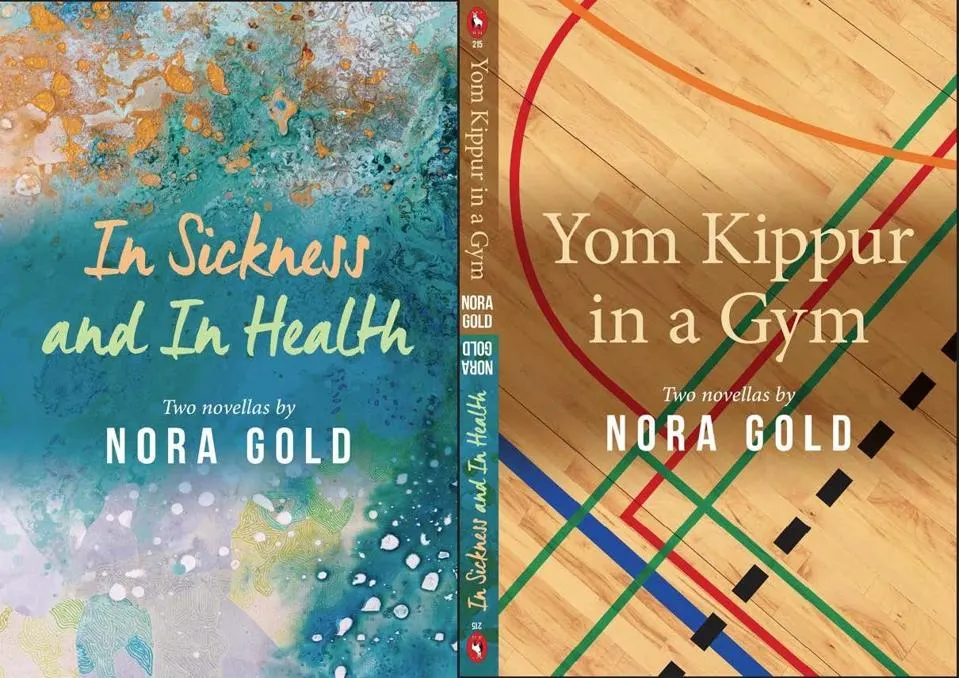Nora Gold’s novellas, In Sickness and In Health, and Yom Kippur in a Gym (Guernica Editions)
COVER COURTESY OF NORA GOLD AND GUERNICA EDITIONS
Nora Gold, the prize-winning Canadian author of novels and short stories and the founder and editor-in-chief of JewishFiction.net, has just published what Vegas aficionados call a twofer – that is two for the price of one, in this case two novellas, In Sickness and In Health, and Yom Kippur in a Gym in one volume (Guernica Editions).
At first glance, the novellas could not seem more different. In Sickness and In Health is the account of a few days in the life of a college professor who is suffering a bout of a fugue state that doctors can’t diagnose but that she believes may be Chronic Fatigue Syndrome – and that may or may not be related to having childhood epilepsy, a condition which she has hidden from her husband.
Yom Kippur In a Gym is, as the title indicates, the story of a Yom Kippur observance for a congregation’s overflow crowd held in a gym. Contrary to its sister novella, rather than one person’s story, it is the tale of half a dozen people at the service.
Here, Gold explains how her character’s sickness affects her: “The hours are what worried Virginia Woolf, but you worry about the minutes. When you’re well there are never enough of them, but now there are too many.”
They each have their own issues: Petty, trivial, resentment of longstanding, feelings of inadequacy, depression, unworthiness – and in one day, Yom Kippur, they have the opportunity to change their future.
For example, Ezra, a painter who feels he missed his chance for success, has an epiphany: “…You spend your whole life chasing success, running after the iridescent, dancing, elusive, illusive bubble, and when you finally reach the magic glade, you discover it’s empty. There’s nothing there.”
Author Nora Gold
PHOTO BY YAAL HERMAN, COURTESY OF NORA GOLD
Gold entertains in In Sickness and In Health, by giving the narrator one funny habit: she collects curses in foreign languages and uses them liberally throughout the novella. In Yom Kippur in a Gym we ride the roller coaster of the characters neuroses, their family squabbles, bakery issues, religious beliefs (or lack thereof), all as Gold leads us through the day’s prayers.
Gold accomplishes the technical challenges of each novella deftly while bringing each to a successful resolution – and a happy ending. Which is when the reader realizes that these two stories have more in common than one might think at first blush.
Though they get there in different ways, both novellas are about finding community, and about being supported – one from a loving spouse, the other from a community brought together by a set of shared experiences. And that, makes for a twofer worth reading.



